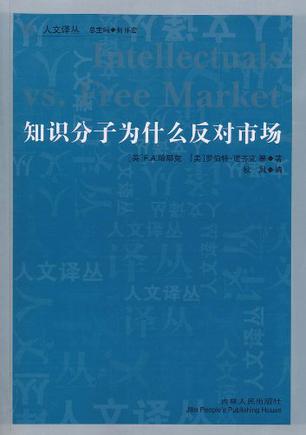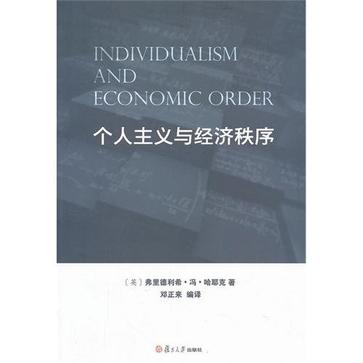-

法律、立法与自由
本书为中国大百科全书出版社“外国法律文库丛书”的一种,此为第二版。
本书是1974年诺贝尔经济学奖获得者、本世纪最重要的自由主义理论家弗里德利希•冯•哈耶克历经17年的思考而分别于1973年、1976年和1979年发表的最后一部系统性的学术著作。这部重要著作大体上依据“法律、立法与自由 ”这个总标题所关涉的庞大主题而相应地被分成三卷:第一卷为“规则与秩序”,第二卷是“社会正义的幻象”,第三卷则是“自由社会的政治秩序”。哈耶克在这部著作中详尽讨论了法律与立法之间的关系,并阐明了“进化论理性主义”的法治观;他经由法律理论的阐发和建构,最终完成了他从社会理论到自由理论再到法律理论这一宏大的自由主义社会哲学体系。
-

知识分子为什么反对市场
自由市场大幅度地改进了世界各地民众的生活境遇,然而,那么多的知识分子又那么鄙视、厌恶甚至憎恨自由市场。为什么?哈耶克、诺齐克、弗里德曼、斯蒂格勒、布坎南等当代最杰出的政治哲学家和经济学家一齐来会诊这种奇怪的心理症状。 -

哈耶克社会理论
《哈耶克社会理论》从哈耶克的“终身问题”(对人类社会中的“自生自发秩序”即内部秩序做理论上的阐发和捍卫)入手,以哈耶克理论的内在理路为线索,对哈耶克的自由主义社会理论、法律哲学和政治哲学等展开了综合性的“无学科”研究。具体内容包括哈耶克的方法论个人主义、社会正义的基本诉求、哈耶克批判“社会正义”之观点的补论、无知观与社会理论的确立等。 -

不要命的自負
「社會主義是個錯誤嗎?」一生都在與社會主義搏鬥的博學鴻儒海耶克, 於一九七八年原訂針對此一主題來個大辯論,但因一些現實理由而作罷,最後將 其自由市場這一方的主要論點揮灑成書,名為《不要命的自負》。 本書濃縮了海耶克畢生淬煉的犀利靈見,對社會主義及其在思想與感情上 的來源作了嚴肅的解剖與批駁。對於真正關心「社會」﹑政治和經濟政策者, 應可提供寶貴啟示。 -

个人主义与经济秩序
F.A.哈耶克是20世纪西方最重要的自由主义理论家、经济学家和政治哲学家之一,诺贝尔经济学奖获得者。在这本论文集中,他围绕着同一个议题,在由道德哲学、社会科学研究方法,到经济政策、经济学理论的诸领域内展开论述。本书的部分文章延续了其经典著作《通往奴役之路》一书中对自由市场与计划经济的探讨,另一些则是较为专业的论文。 -

The Road to Serfdom
In the last years of World War II, Friedrich Hayek wrote The Road to Serfdom. He warned the allies that policy proposals which were being canvassed for the post-war world ran the risk of destroying the very freedom for which they were fighting. On the basis of 'as in war, so in peace', economists and others were arguing that the government should plan all economic activity. Such planning, Hayek argued, would be incompatible with liberty, and had been at the very heart of the movements that had established both communism and Nazism. On its publication in 1944, the book caused a sensation. Neither its British nor its American publisher could keep up with demand, owing to wartime paper rationing. Then, in 1945, Reader's Digest published The Road to Serfdom as the condensed book in its April edition. For the first and still the only time, the condensed book was placed at the front of the magazine instead of the back. Hayek found himself a celebrity, addressing a mass market. The condensed edition was republished for the first time by the IEA in 1999 and has been reissued to meet the continuing demand for its enduringly relevant and accessible message.